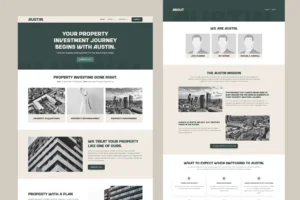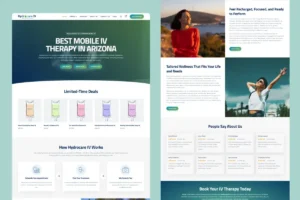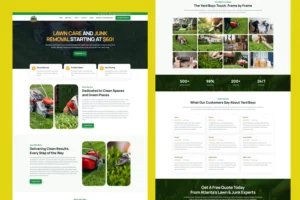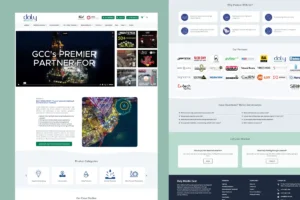At DevsKing, we believe every website project tells a story — and LemonTree Exhibition Website Design is a shining example. The client wanted more than a digital presence; they needed a platform to showcase exhibitions, engage visitors, and drive measurable results.
Our mission was to create a website that performs, converts, and grows alongside the business.
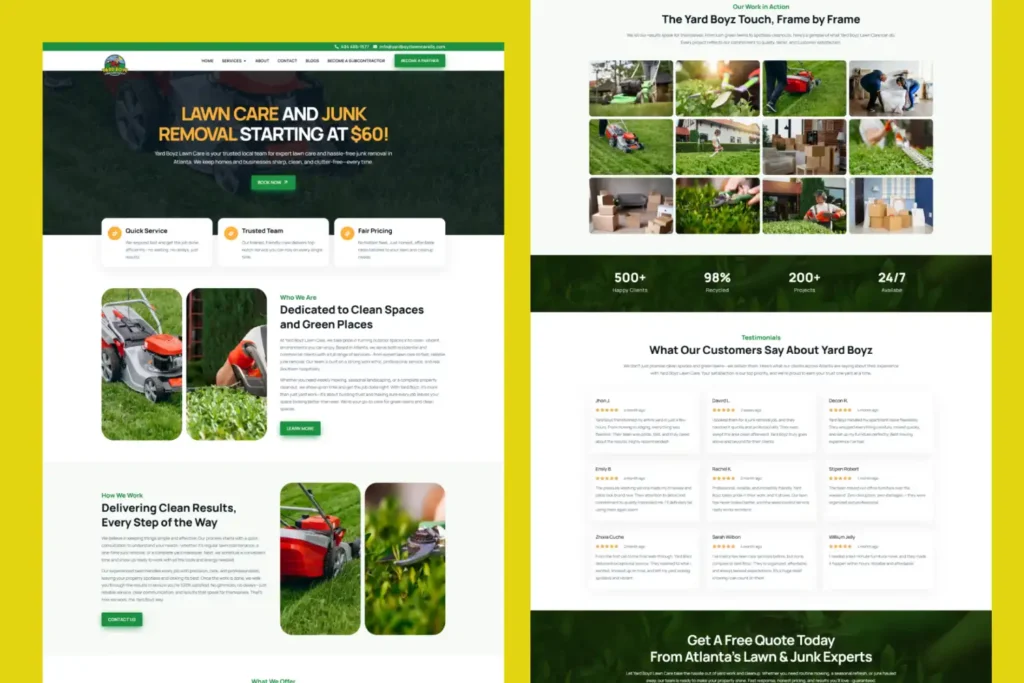
Step 1: Strategic Planning
Planning is the backbone of success. For LemonTree Exhibition Website Design, we began with:
- Research and user journey mapping
- Wireframes and content flow
- Navigation and conversion path strategy
Through our work process, the client actively participated in every stage, ensuring the design aligned with their vision.
Step 2: WordPress & Elementor Pro Development
We chose WordPress for flexibility and Elementor Pro for creative freedom. The website features:
- Mobile-first responsive design
- Interactive exhibition showcases
- Optimized service pages for conversions
- Easy-to-update modular layouts
This ensured LemonTree Exhibition Website Design is both visually stunning and user-friendly.
Step 3: Hosting & Speed Optimization
With Dronahost.com hosting, the website achieves:
- Lightning-fast loading times
- Excellent uptime reliability
- Optimized images and lazy loading
- Minified CSS/JS and advanced caching
Fast loading improves SEO, user engagement, and conversion rates.
Step 4: Testing for Perfection
Before launch, we conducted thorough testing across:
- Browsers and devices
- Responsiveness and accessibility
- Security protocols and performance
- User experience and navigation
This QA phase ensured a flawless launch for LemonTree Exhibition Website Design.
Step 5: Advanced SEO Strategy
SEO was integrated from the start. Key elements include:
- Meta tag, heading, and image optimization
- Keyword placement: LemonTree Exhibition Website Design
- Schema markup for events and exhibitions
- XML sitemaps and robots.txt setup
- Content strategy for high-intent search queries
For inspiration, our blogs demonstrate how content supports SEO growth.
Step 6: Speed & SEO Synergy
Performance is key to SEO. With CDN, Gzip compression, caching, and image optimization, LemonTree Exhibition Website Design scores high on PageSpeed Insights, reducing bounce rates and increasing search visibility.
Step 7: Paid Ads & Remarketing
To maximize visibility and conversions:
- Google Ads and social campaigns were launched
- High-intent keywords targeted relevant audiences
- Remarketing funnels captured returning visitors
- Conversion tracking ensured lead generation efficiency
Step 8: Social Media Marketing
Social media extended the reach of LemonTree Exhibition Website Design through:
- Consistent brand visuals
- Engaging posts highlighting exhibitions
- Paid campaigns targeting niche audiences
- Performance analytics tracking
Step 9: Content & Blogging Strategy
Content marketing fuels long-term growth. We recommended:
- Regular blog posts about exhibitions and trends
- SEO-optimized articles for organic traffic
- Engaging resources to establish brand authority
Step 10: Analytics & Data-Driven Improvements
We integrated Google Analytics and Search Console to track:
- Organic traffic growth
- Visitor behavior and engagement
- Conversion rates from leads and forms
Data-driven insights allowed continuous improvement of LemonTree Exhibition Website Design.
Step 11: Scalability
Built with a modular structure, LemonTree Exhibition Website Design can expand to include:
- New exhibition pages
- Event galleries
- Landing pages for campaigns
- Third-party integrations
This ensures long-term adaptability without costly redesigns.
Step 12: Continuous SEO Improvements
SEO is ongoing:
- Updating content with fresh keywords
- Building high-quality backlinks
- Monitoring competitors
- Optimizing for mobile-first indexing and voice search
Step 13: Security & Reliability
Security measures include:
- SSL certificate and firewall
- Daily backups and malware scans
- Reliable hosting via Dronahost.com
Step 14: Conversion Rate Optimization (CRO)
CRO enhancements included:
- Strategic CTA placement
- Landing page layout improvements
- Button color and typography testing
- Lead capture form optimization
Step 15: Future-Proof Design & Technology
The site was built to adapt to:
- WordPress updates
- AI tools and automation
- eCommerce expansion
- New integrations and features
Step 16: Client Training & Handover
The LemonTree team received:
- Hands-on content and event management training
- Documentation for updates and analytics
- Guidance for lead tracking and reporting
Step 17: Ongoing Marketing Support
We provided continued support:
- Seasonal campaigns
- Social media content calendars
- Email marketing and lead nurturing
Final Results
LemonTree Exhibition Website Design achieved:
- 🚀 Lightning-fast performance
- 📈 Strong SEO rankings and organic traffic
- 🎯 Higher lead conversion rates
- 🌍 Increased brand visibility
- 🔒 Secure, reliable hosting
- 🛠 Future-ready website structure
Key Takeaways
- Planning is essential
- Design builds trust
- Speed improves SEO and engagement
- SEO requires ongoing effort
- Marketing amplifies results
- Scalability prevents costly redesigns
- Collaboration ensures alignment
❓ FAQs About LemonTree Exhibition Website Design
Q1. What is LemonTree Exhibition Website Design and why is it important?
A: LemonTree Exhibition Website Design is a custom-built platform to showcase exhibitions, engage users, and generate leads.
Q2. How long does it take to complete LemonTree Exhibition Website Design?
A: Several weeks, including planning, design, development, SEO, and testing.
Q3. What makes LemonTree Exhibition Website Design different from template sites?
A: Fully custom-built with WordPress + Elementor Pro for performance and branding.
Q4. Is LemonTree Exhibition Website Design SEO-optimized?
A: Yes, it includes on-page SEO, technical SEO, and schema markup for exhibitions.
Q5. How fast is LemonTree Exhibition Website Design?
A: Optimized hosting and performance enhancements allow the site to load in under 2 seconds.
Q6. Can LemonTree Exhibition Website Design handle future expansions?
A: Yes, the modular structure allows new pages, blogs, or eCommerce integrations.
Q7. What role did Elementor Pro play?
A: Enabled creative control for visually compelling and responsive layouts.
Q8. Is it mobile-friendly?
A: Yes, it follows mobile-first design principles for seamless usability.
Q9. What marketing strategies were implemented?
A: SEO, Google Ads, remarketing, and social media campaigns.
Q10. How can businesses get similar results?
A: Start with a free consultation and follow DevsKing’s work process.
